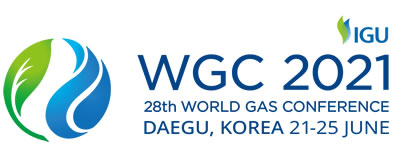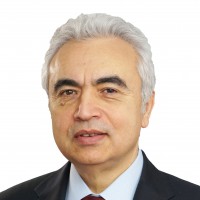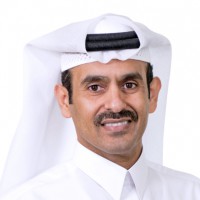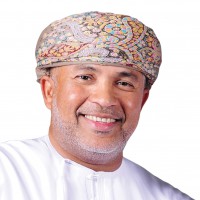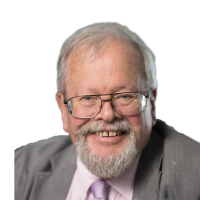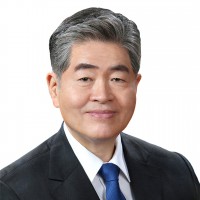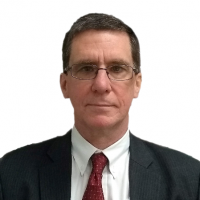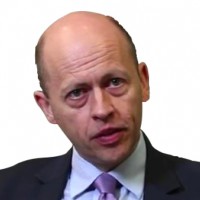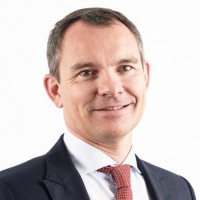
OPENING DIALOGUE: A SUSTAINABLE FUTURE IN ENERGY
This session discusses the big picture of the global gas industry over the next decade and will set the scene for the week ahead at WGC 2021.
It will examine the importance of how the energy transition should give access to affordable, reliable, accessible and sustainable energy systems. Different approaches may be taken around the globe but the overall aim is clear that we need to successfully transform energy systems by increasing investment in cleaner technologies, finding a partnership between gas and renewables and securing financial investment.
Moderator
LUNCHEON ADDRESS: HOW DOES GAS STAY COMPETITIVE IN THE FUTURE ENERGY SYSTEM?
This lunch session explores how natural gas can remain a crucial energy component in decarbonized energy system? This includes not only the replacement of carbon intense fuels by natural gas but also the role and challenge of gas as a critical component in the ever evolving environment-energy system.
*An additional fee applies to attend this session
P1: NARRATIVES FOR THE EVOLUTION OF THE GLOBAL GAS MARKET
This plenary explores the global gas market in June 2021 and the factors driving a balance between supply and demand.
The discussion will highlight immediate shifts and trends facing the industry, as well as the opportunity for a liquid LNG market and hub.
P2. MARKET GROWTH ENABLERS IN THE GAS INDUSTRY
This plenary explores how access to gas and LNG for new and existing customers is being facilitated through new projects, technologies as well as the evolution of business models and commercial terms.
P3. THE EMERGING TRANSPORTATION ECOSYSTEM
This plenary will provide an opportunity to hear from the industries deploying cleaner technologies and strategies that are transforming marine and land transportation in the 21st century, including ship-building and bunkering.
LUNCHEON ADDRESS: THE IMPACT OF SUSTAINABILITY IN THE MARITIME INDUSTRY
*More details to follow shortly
P4. DIGITAL TECHNOLOGIES TRANSFORMING THE GAS INDUSTRY
Digital technologies will be a key enabler in the gas industry to reduce costs, drive better workforce performance and safety. This session explores how the gas industry can adopt and leverage the opportunities presented by new digital systems, such as AI and Blockchain, in order to allow it to grow.
How have other industries employed these new technologies and what can we learn from their success?
P5. FUTURE GROWTH OF THE ASIAN GAS MARKET
This plenary will examine how China, Japan and Korea have dominated global demand growth in recent times, and explore the prospects and various opportunities for such a transformation in other Asian countries.
LUNCHEON ADDRESS: FINANCING INFRASTRUCTURE AND THE EMERGENCE OF ‘GREEN FINANCE’
One of the constraints in building gas infrastructure is securing finance on a long-term basis. A challenge in developing markets is that these long-term projects rely so heavily on governmental support. If a government has no track record or history of entering into these types of long-term contracts, then there is a hesitation among private investors and bankers to support the project. Added to this, banks are now starting to divest more into renewables as we see an emergence of ‘Green Finance’. This lunch session explores the changing dynamics of financial markets and how will they impact the development of new gas infrastructure.
*An additional fee applies to attend this session
P6. INNOVATION AND TECHNOLOGY IN A SUSTAINABLE ENERGY FUTURE
This plenary explores the latest R&D investments and technological innovations for a sustainable energy industry that crosses borders and value chains, including methane emissions, storage, renewables and LNG.
P7. ACCESS TO GAS: DRIVING ECONOMIC GROWTH AND REDUCING ENERGY POVERTY
Accessing energy is the single most important factor in improving the lives of individuals and increasing economic growth in communities. This plenary explores the opportunities and challenges for the gas industry in providing affordable clean energy for cooking, heating, lighting and infrastructure, in order to drive economic development and help alleviate poverty.

